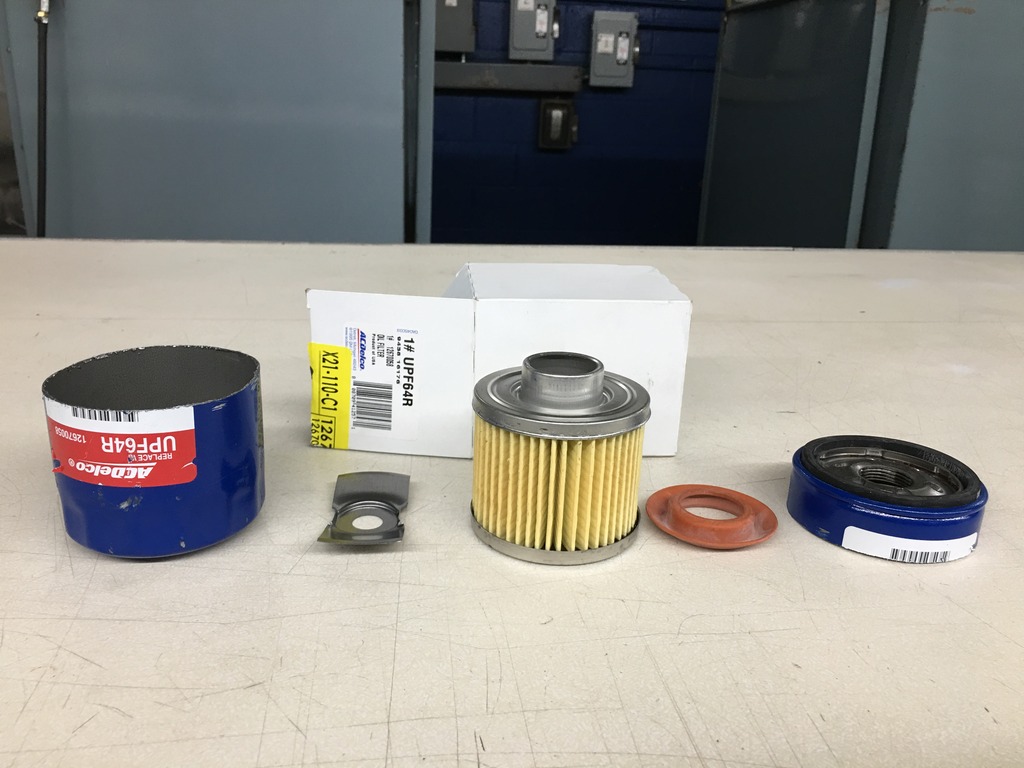Originally Posted By: ZeeOSix
Originally Posted By: oil_film_movies
ZeeOSix, and the case of very
cold oil at start-up: Starter turns over, then oil pump turns and its at full-volume, maxed out, waiting for the GM special feedback control signal to tell it to calm down a bit. (They put their pressure sensor way downstream now for this.).... So the oil filter gets hit by high pressure at
constant volume flow rate (maxed out) until a few seconds later, maybe popping the bypass open
until back-pressure is built-up on the clean side of the oil filter, which should happen in less than a second. .......... Of course it won't pop the filter's bypass valve if it is set high, and the even higher (32 psi UPF64R) means it should be even more rare.
Even with an old fashioned typical (non-"smart") PD oil pump with a spring loaded pressure relief valve, it is "at full volume maxed out" upon start-up until the pressure relief valve kicks in - if it's going to kick in based on circumstances. A PD oil pump is always at "full volume" based at any given PRM (meaning putting everything coming out of the pump into the engine's oiling system at that given RPM)
as long as the pump is not in pressure relief. I think even in a "dumb" oil pump setup, there is a small pressure spike upon cold start-up which could open the filter's bypass valve for a second.
Only difference with the "smart feedback pressure control" system used on these GM engines is that the oil pump will be slow to react to the back pressure build-up on the pump which makes the pump start to relieve pressure and flow. So the flow will remain relatively high through the oil filter for a longer period of time. That's basically what you've said above, and GM is basically also saying in their TSB.
One of my arguments about that is on a cold start-up the engine flare-up RPM might be 1500~1700 PRM for a few seconds, which means the volume coming out of the oil pump isn't very much anyway. So GM must be thinking of the absolute worse cold start-up case scenarios.
Originally Posted By: oil_film_movies
I don't think the higher 32 psi pressure would over-stress the oil pump. No problem there. It's accustomed to much higher backpressure than 32. If the oil was cold AND the filter partially or fully clogged, then you'd still get the 32 psi valve to pop open and you'd get a lot of oil flow to save your engine in that case.
Yes, nothing really "over stresses" the oil pump. It's designed to operate anywhere up to it's pressure relief point.
In the case of the oil pump pressure relief being controlled by a "feedback pressure sensor" way downstream of the oil filter, then there shouldn't be any oil flow being cut-back from the engine when the pump goes into pressure relief. This is because the PD pump will just keep putting out volume until the pressure in the gallery is met where the sensor is located - thereby making the delta-p across the filter "invisible" to the main oil gallery in the engine.
But as I demonstrated above, if a filter with a very high bypass valve setting was used on a typical PD oil pump that has a spring loaded pressure relief valve, the oil flow volume to the engine will certainly be effected by the time the filter goes into bypass.
Originally Posted By: oil_film_movies
Oil pumps are positive displacement pumps. This means when oil enters a huge over-sized oil filter (i.e., a PF63E vs. PF64), the pressure across the media and bypass valve is less. Therefore I think an oversized oil filter actually allows one to run a lower bypass valve threshold.
Best way to understand this is to look at a 10 gallon-per-minute GPM flow velocity & pressure in a skinny pipe, and then watching velocity & pressure drop if it transitions to a wide pipe.
I agree that using an oil filter with more media area (if the same exact media) will help reduce the delta-p across the filter. Also, any filter that has media that flow better with less delta-p will help - ie, full synthetic oil filters.
Sounds like you two just confirmed that my oversized Ultra is a good option
I'm just happy to have a better constructed filter from GM. That being said, the PF64 I got back from them (yes I asked them to return the old filter) had nice even pleats and was in good shape. I'll post the C&P tonight.





